|
Alexandra Chouldechova
Estella Loomis McCandless Assistant Professor of Statistics and Public Policy
Heinz College of Information Systems and Public Policy
Alexandra Chouldechova's research focuses on questions of algorithmic fairness and accountability in data-driven decision-making systems in domains such as criminal justice and human services. She studies how statistical methodologies can aid in developing human-centered, data-driven decision-making systems that mitigate biases and reduce disparities.
Chouldechova received her B.Sc. from the University of Toronto and her Ph.D. in statistics from Stanford University. While at Stanford, she also worked at Google and Symantec on developing statistical assessment methods for information retrieval systems.
|
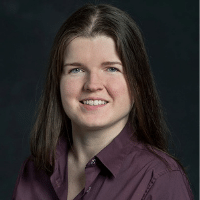
|
|
Ulrike Endesfelder
Cooper-Siegel Associate Professor of Physics
Mellon College of Science
Ulrike Endesfelder obtained her formal training in physics at the universities of Bonn (M.S.) and Bielefeld (Ph.D.) in Germany. She then trained as a post-doctoral researcher at the universities of Würzburg and Frankfurt and held research scholarships at Waseda University (Tokyo) and Stony Brook University. In 2014, she joined the Max Planck Institute for Terrestrial Microbiology in Marburg, Germany, at which she led a research group focused on combining methods from physics and molecular biology to understand the sub-cellular organization and behavior of microbes. Endesfelder joined CMU’s Biological Physics department in September 2020.
She is a recent alumnus of the Young Academy (active elected member from 2015 to 2020) associated with the German National Academy of Sciences Leopoldina and the Berlin-Brandenburg Academy of Sciences and Humanities, Germany.
|
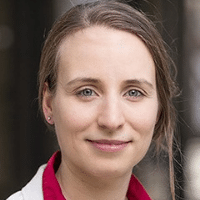
|
|
Geoff Kaufman
Robert E. Kraut Assistant Professor
School of Computer Science
Geoff Kaufman's work focuses on studying the psychological/social impact of fictional narratives, games and computer-mediated interactions; uncovering and empirically verifying user-specific, design-specific and situational variables that increase that impact; and extrapolating techniques and best practices for the creation of stories, games and new technologies as "interventions" for social change.
His work has primarily investigated the psychological process of simulating the subjective reality of a character and adopting that character’s persona, goals, emotions, beliefs and actions. Kaufman's cross-disciplinary work — which utilizes approaches from social psychology, communication and media studies — has uncovered several key antecedents of experience-taking (such as the level of psychological distance between individuals and characters) and revealed the impact of experience-taking on real-life behaviors (such as volunteering and voting).
In collaboration with colleagues at Dartmouth College's Tiltfactor Lab, Kaufman is also deeply involved in the development and research of games for social impact. His work has guided the formulation of a model of "embedded design," strategies of interweaving or obscuring the persuasive content or intentions of a game to increase its impact without sacrificing player immersion or enjoyment. Ongoing work is testing the application of these strategies to games aiming to reduce social biases, model effective bystander intervention techniques and encourage pro-environmental habits and behaviors.
|

|
|
Fatma Kilinc-Karzan
Associate Professor of Operations Research, Frank A. and Helen E. Risch Faculty Development Chair in Business
Tepper School of Business
Fatma Kılınç-Karzan is also an Associate Professor of Computer Science (by courtesy) at the School of Computer Science, and is a member of the Algorithms Combinatorics and Optimization (ACO) PhD Program. She completed her PhD at Georgia Institute of Technology in the H. Milton Stewart School of Industrial & Systems Engineering Department with a minor in Mathematics.
Kılınç-Karzan's research interests are broadly in Operations Research, Analytics, and Machine Learning. She is currently working on developing foundational theory and algorithms for convex optimization and structured nonconvex optimization, and their applications in optimization under uncertainty (robust optimization, chance constraints and distributionally robust optimization), machine learning (preference learning from limited data) and business analytics. Her work has won several best paper awards including 2014 INFORMS Junior Faculty Interest Group (JFIG) Best Paper Award, 2015 INFORMS Optimization Society Prize for Young Researchers, 2017 INFORMS Computing Society Best Student Paper Prize (runner up), 2018 INFORMS Optimization Society Best Student Paper (honorable mention), 2014 INFORMS Data Mining Best Student Paper Award (finalist). Her research is supported by generous grants including an NSF CAREER Award and an ONR grant.
|

|
|
Tae Wan Kim
Associate Professor of Business Ethics, Xerox Junior Faculty Chair
Tepper School of Business
Tae Wan Kim is a faculty member of the Block Center for Technology and Society at Heinz College and CyLab at the School of Computer Science. Prior to joining Tepper's faculty in 2012, he completed his Ph.D. in the Department of Legal Studies and Business Ethics at the Wharton School, University of Pennsylvania.
Kim has served as a committee member of the IEEE Global Initiative for Ethical Considerations in Artificial Intelligence and Autonomous Systems, Halcyon Dialogue for Responsible Integrated Technology Certification and Program Committee of AAAI/ACM Conference on Artificial intelligence, Society and Ethics since 2018. Kim has published in Business Ethics Quarterly, Journal of Business Ethics, Berkeley Business Law Journal, Ethics and Information Technology, Academy of Management Learning & Education, Proceedings of ACM CHI, Proceedings of AAAI/ACM on Artificial Intelligence, Ethics and Society and Proceedings of IEEE Privacy-Aware Computing as well as book chapters of Robot Ethics 2.0 (Oxford University Press), Cambridge Handbook of Research Approaches to Business Ethics and Corporate Responsibility (Cambridge University Press), Humanizing Business (Springer), Alternative Theories of the Firm (Routledge) and Business & Society 360 (Emerald). Kim is on the editorial boards of Business Ethics Quarterly and Journal of Business Ethics.
|

|
|
Hui Li
Assistant Professor of Marketing, Carnegie Bosch Junior Faculty Chair
Tepper School of Business
Hui Li's research interest is in the area of quantitative marketing. Her current work investigates two-sided platform, sharing economy, online-to-offline commerce, new technology and digital product and their impact on traditional industries. Trained as an economist, she is also interested in their social impact and policy implications.
Her research has been published in Marketing Science, Journal of Marketing Research and Management Science, and was named a finalist for the John D.C. Little Award (2019). She has been invited to present her research at leading academic institutions and government agencies including the Antitrust Division of U.S. Department of Justice (DOJ) and the Federal Trade Commission (FTC).
She received her Ph.D. in economics from the University of Pennsylvania in 2015 and B.A. in economics from Peking University in 2010.
|
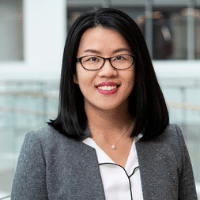
|
|
Zachary Lipton
Assistant Professor of Operations Research and Machine Learning, BP Junior Faculty Chair
Tepper School of Business
Zachary Chase Lipton's research spans core ML methods and theory, their applications in healthcare and natural language processing, and critical concerns, both about the mode of inquiry itself and the impact of the technology it produces on social systems. Lipton completed his Ph.D. at the University of California San Diego's Artificial Intelligence Group in 2017. He has authored / co-authored two reviews of the literature (on RNNs and Differential Privacy) and an interactive book, Dive into Deep Learning, which teaches deep learning through exposition, math and code in a fully-interactive textbook written in Jupyter and automatically compiled to HTML and PDF (Cambridge University Press).
Lipton is also affiliated with the Heinz School of Information Systems and Public Policy and is a visiting applied scientist for Amazon AI in Palo Alto.
|

|
|
Brandon Lucia
Sathaye Family Foundation Career Development Associate Professor of Electrical and Computer Engineering
College of Engineering
Brandon Lucia's research spans programming languages, software and hardware computer systems, and computer architecture. His lab is defining the area of intermittent computing on battery-less, energy-harvesting devices as well as designing reliable, low-latency, high-throughput parallel cloud and edge computing systems.
His cross-cutting computer systems research has led to a 2018 NSF CAREER Award, the 2018 ASPLOS Best Paper Award, three IEEE MICRO Top Picks in Computer Architecture (2009, 2010 and 2016), a 2015 OOPSLA Best Paper Award, the 2015 Bell Labs Prize, a 2016 Google Faculty Award and an appointment to the DARPA ISAT study group.
|

|
|
Benjamin Moseley
Associate Professor of Operations Research, Carnegie Bosch Junior Faculty Chair
Tepper School of Business
Ben Moseley's research interests are broadly in operations research, theoretical computer science and machine learning, working on the design, analysis and evaluation of algorithms. He is currently focusing on scheduling theory, distributed computing and the theoretical foundations of machine learning. He received a Ph.D. from the University of Illinois in computer science and was advised by Professor Chandra Chekuri.
Moseley is also an assistant professor of machine learning in the School of Computer Science (by courtesy) and member of the Algorithms, Combinatorics and Optimization (ACO) Ph.D. program.
|

|
|
Nida Rehman
Lucian & Rita Caste Assistant Professor of Architecture and Urbanism
College of Fine Arts
Nida Rehman is an architect, urban designer and cultural geographer, using methods from urban studies and the history of architecture and planning to examine how processes of urbanization, the politics of planning and design, and the physical structure of cities produce ecological and infrastructural change and impact human health. Her work draws from the fields of urban history, geography and the environmental humanities and is rooted in a concern for the dynamics of place and the built environment shaped by her substantive experience as a practicing architect and urban designer in the United States and Pakistan.
Rehman earned her Ph.D. in cultural geography from the Department of Geography at the University of Cambridge. She also holds a Master’s of Science in architecture and urbanism from the Massachusetts Institute of Technology and a Bachelor of Architecture from Cornell University. She is currently co-editing a book on the methods, experiences and challenges of developing socially motivated forms of mapping and data visualization and exploring their opportunities for advocacy and research. The book extends her work on "Intolerance Tracker," an online mapping platform that she co-founded in 2016 to document and spatialize accounts of gender, ethnic and class-based violence in South Asia.
|
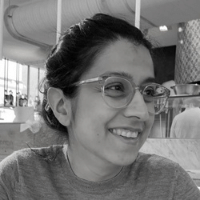
|
|
Thomas Ruchti
Assistant Professor of Accounting, Richard C. Green Junior Faculty Development Chair
Tepper School of Business
Thomas Ruchti's research aims to advance understanding in information economics of the business environment, in both financial institutions and markets. His research has appeared in the Review of Financial Studies, the Review of Finance, The Accounting Review, the Journal of Accounting and Economics, and the Journal of Financial and Quantitative Analysis.
He received his Ph.D. in social sciences from the California Institute of Technology in 2013.
|

|
|
Conrad Tucker
Arthur Hamerschlag Career Development Professor of Mechanical Engineering and Machine Learning
College of Engineering
Conrad Tucker's research explores the use of machine learning methods that predictively improve the outcome of engineered-systems through the acquisition, fusion and mining of large-scale data.
Tucker has served as principal investigator and co-principal investigator on federally and non-federally funded grants from the National Science Foundation, the Air Force Office of Scientific Research, the Defense Advanced Research Projects Agency, the Army Research Laboratory, the Office of Naval Research via the NSF Center for eDesign and the Bill and Melinda Gates Foundation. In February 2016, he was invited by National Academy of Engineering President Dr. Dan Mote to serve as a member of the Advisory Committee for the NAE Frontiers of Engineering Education Symposium.
He received his Ph.D., M.S. (industrial engineering) and MBA degrees from the University of Illinois at Urbana-Champaign, and his B.S. in mechanical engineering from Rose-Hulman Institute of Technology.
|

|
|
Haiyi Zhu
Daniel P. Siewiorek Assistant Professor of Human-Computer Interaction
School of Computer Science
Haiyi Zhu's research interests lie at the intersection of human-computer interaction, machine learning and social psychology. She has broad interests in the design and social impact of AI technologies in online and offline communities.
Zhu received a B.S in computer science from Tsinghua University and an M.S. and a Ph.D. in human-computer interaction from Carnegie Mellon University. She has received multiple NSF awards (CRII, Cyber Human System, EAGER on AI and Society, Fairness in AI and Smart and Connected Communities), several paper awards in venues such as CHI, CSCW and Human Factors, and an Allen Newell Award for Research Excellence.
|
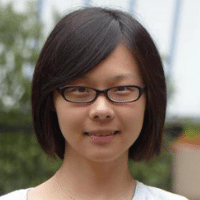
|